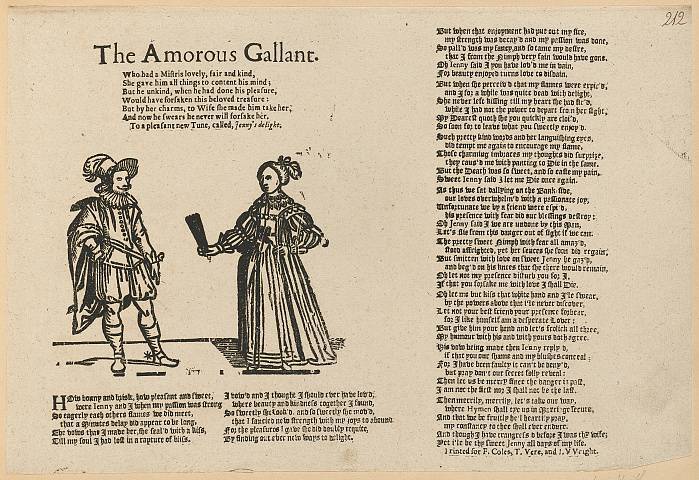The Role of Balladry in Reflecting and Shaping Morality in Modern England
Looking at English balladry from the mid-17th to late-19th century, as well as the culture and criticism surrounding it, allows us to follow a narrative about the ballad-form as reflective of unique positionalities and identities, and the ways they were received within their cultural context. The ballad tradition is historically flexible and often paradoxical, meaning there is no singular way to define the form or its sociocultural purpose. However, looking at a sample of sources, one can observe how ballads were majorly employed for moralistic purposes. They could enforce dominant modes of social conduct through praise, or deter non-desirable behaviour through tales of undoing.
This exhibit includes a selection of ballads, as well as artistic representations of balladry, and illustrations attached to ballad sheets. Collectively, they show how balladry operates on the individual as well as the broadly political level, and that they are often paradoxical. For, while ballads often disseminated and enforced dominant moralistic norms of behaviour and self-expression, they could also be inverted to push back against these forces. Angela McShane, in “Political Street Songs and Singers in Seventeenth-Century England,” explains how the culture of street performance and ballad-selling transformed the street space into a political plane which cannot be understood as belonging to any one group or moral persuasion. It should also be understood that balladry was oft subject to legal suspicion, coding the form as criminalistic, according to balladry scholar, David Atkinson. Engaging a close-reading approach, Atkinson also illuminates how moralistic messages and symbols were communicated through ballads, particularly in the treatment of bodies, framing corporal punishment as morally redemptive and expunging.
What these primary and secondary sources should achieve, together, is showing how morality was embedded in, reflected, and constantly complicated by ballads. Ranging from gender performance, to religion, to political engagement, to romantic relations, ballads consistently played a role in communicating moral opinions with regards to how the English populace should behave in private and public life.
